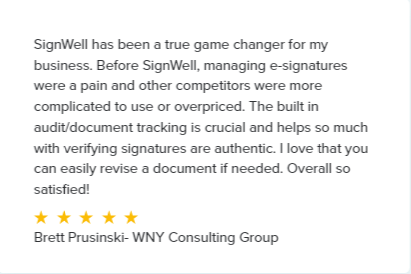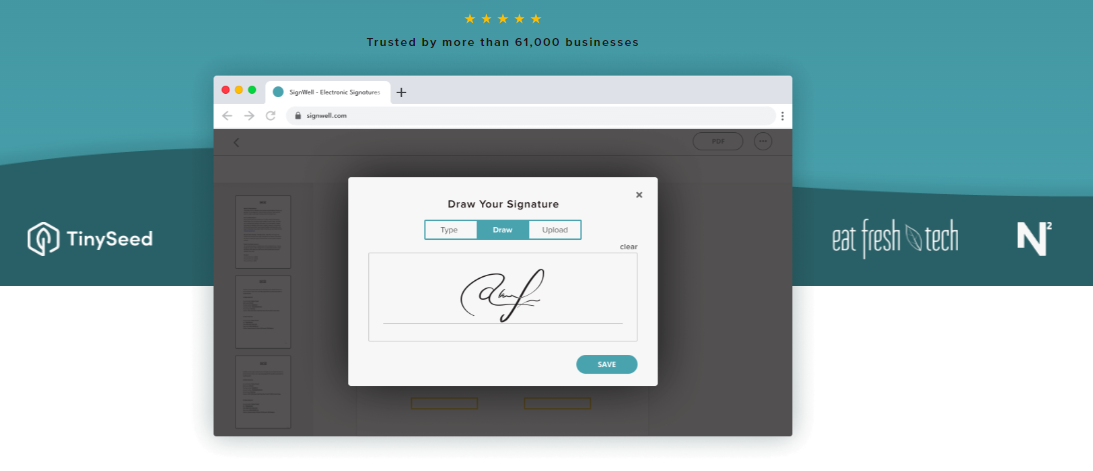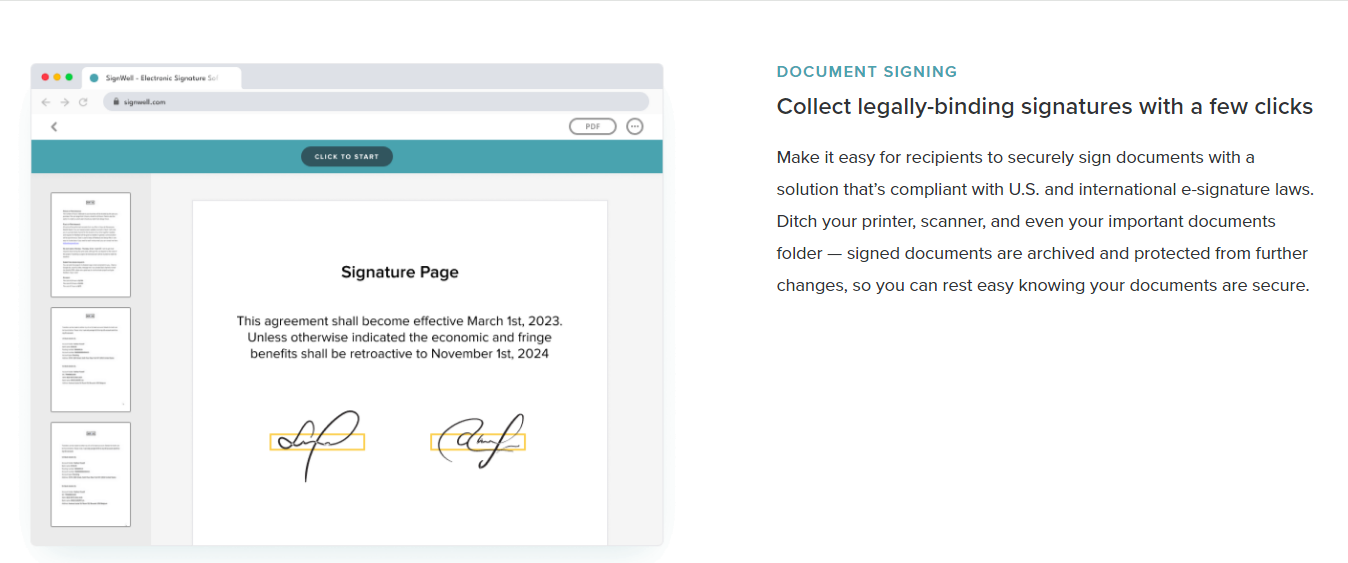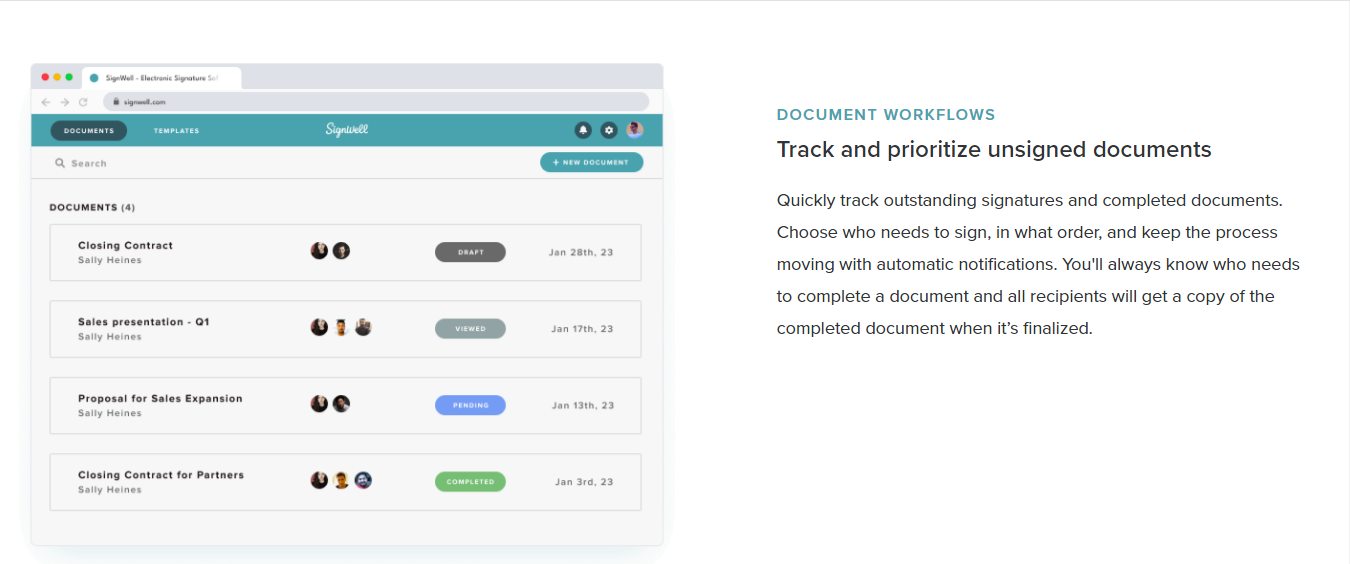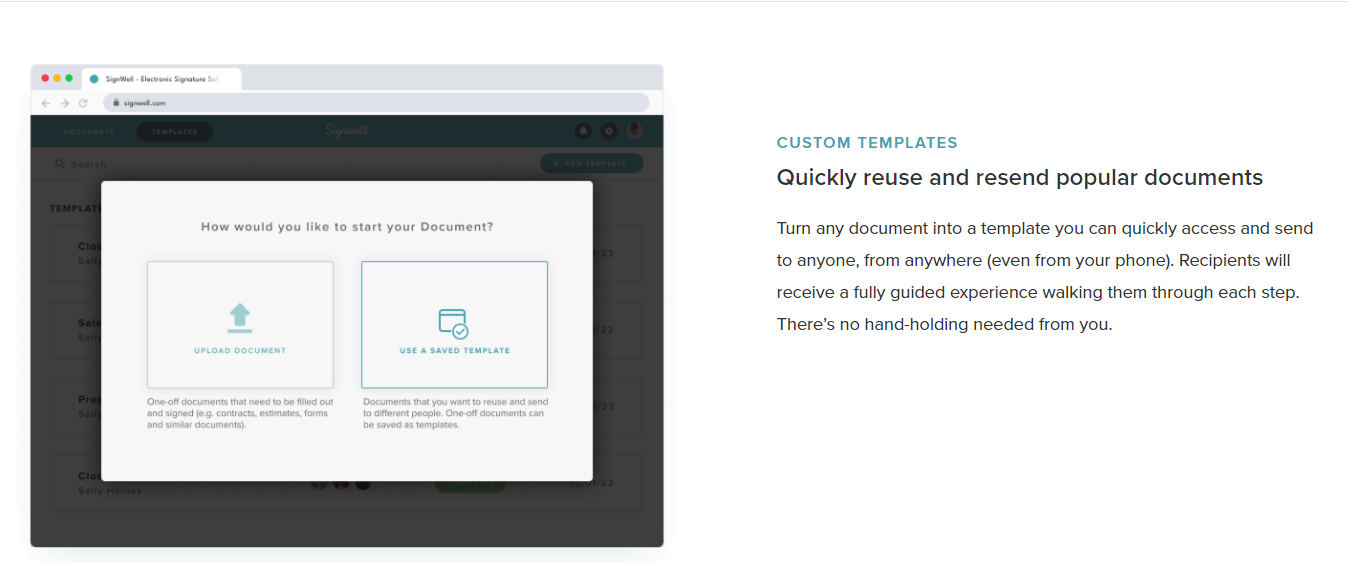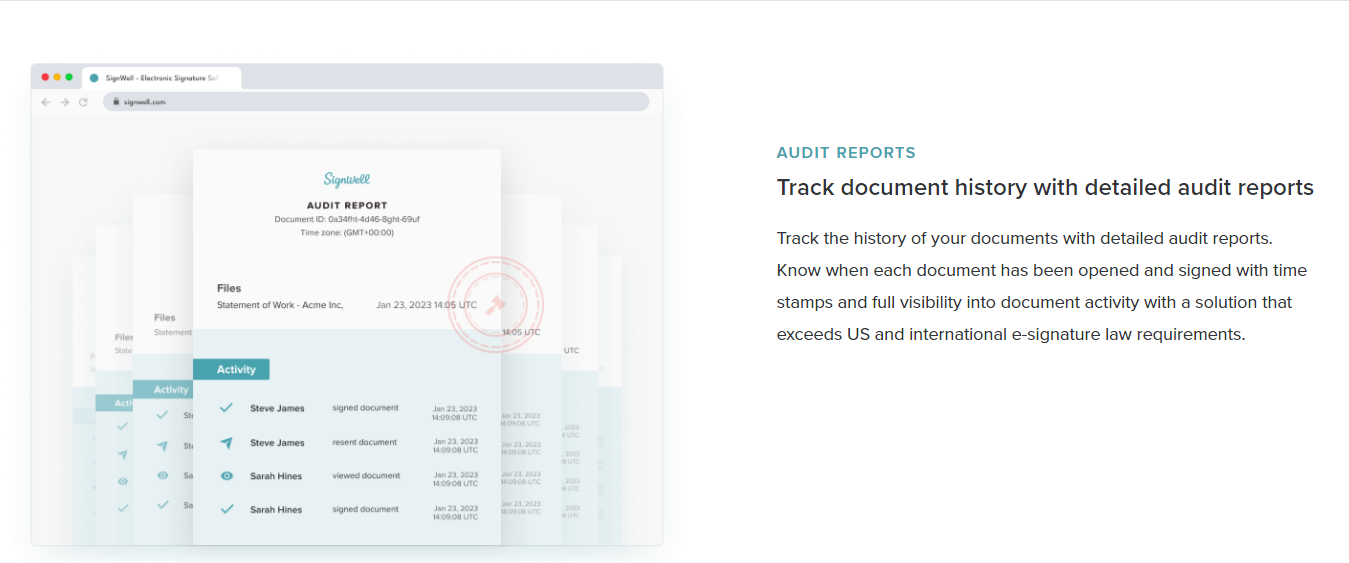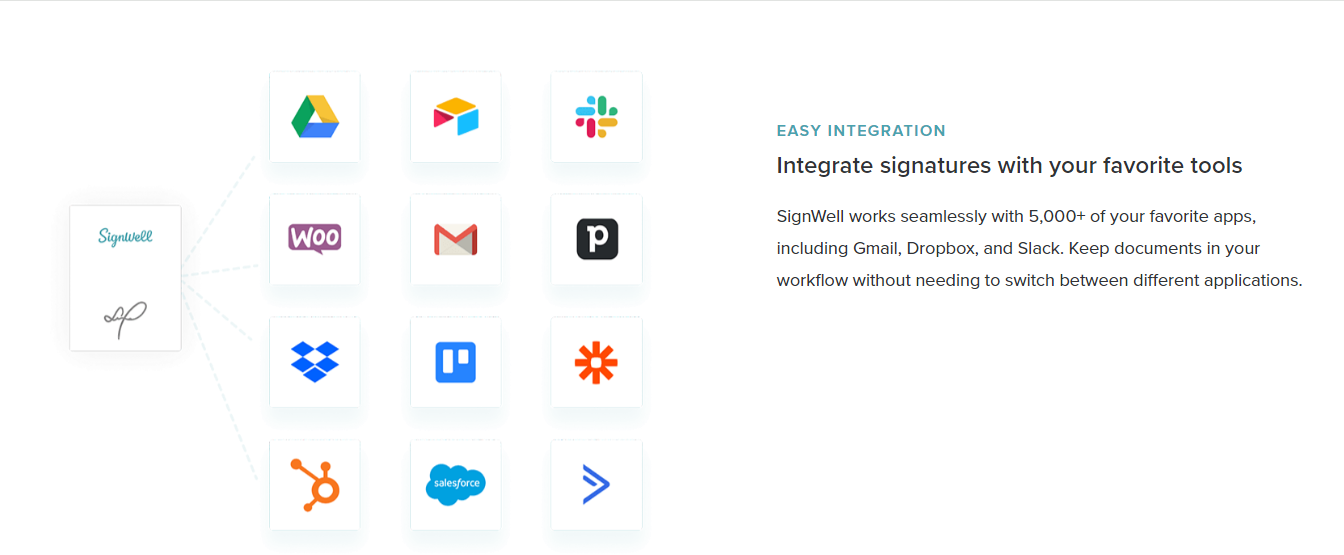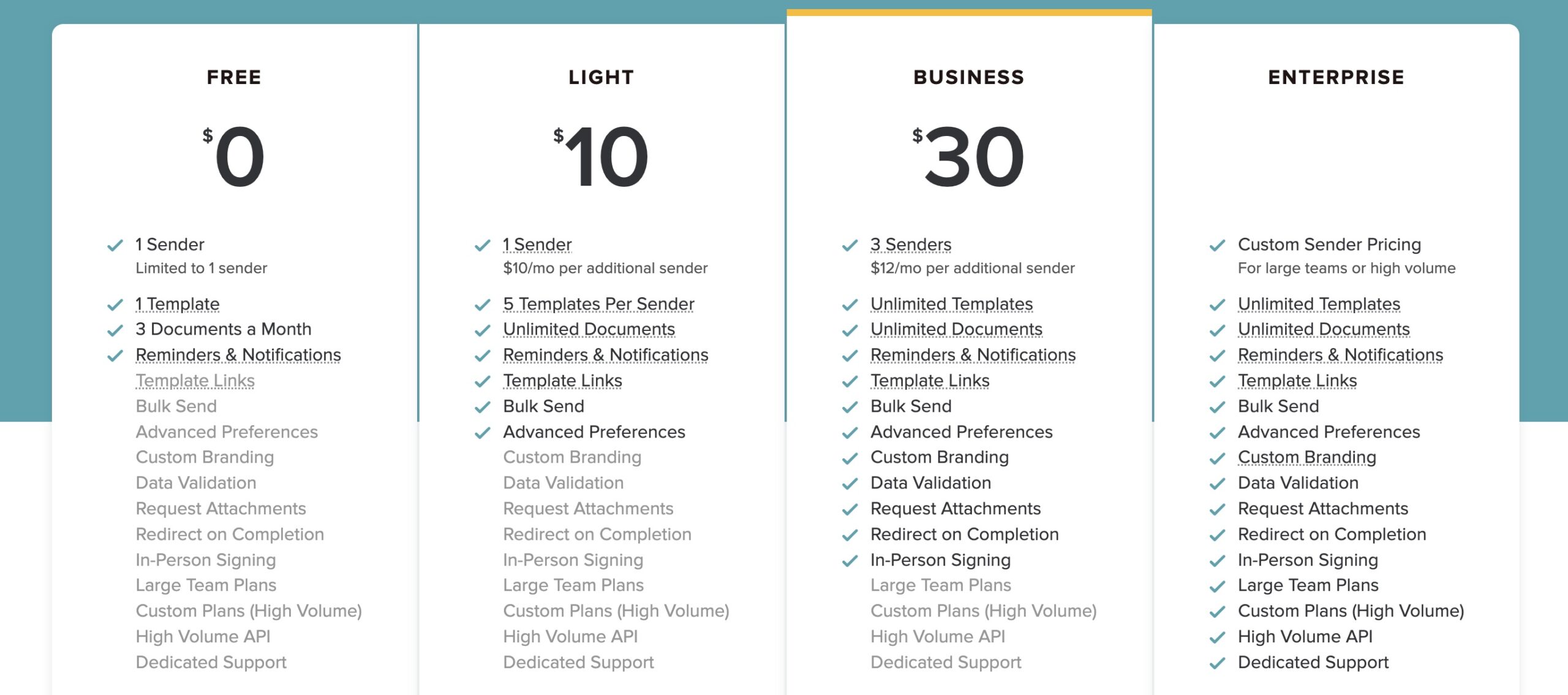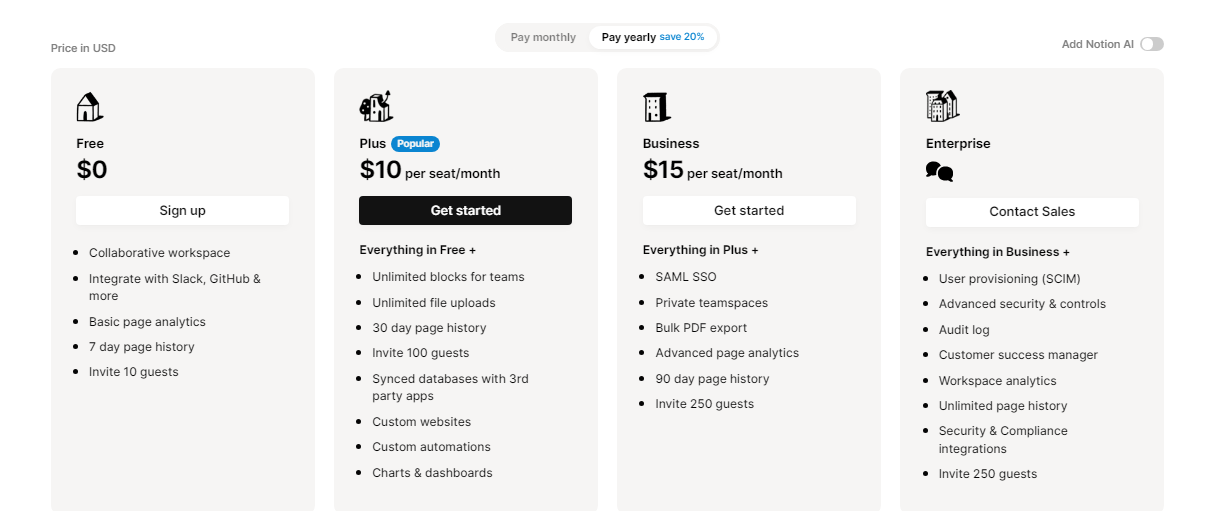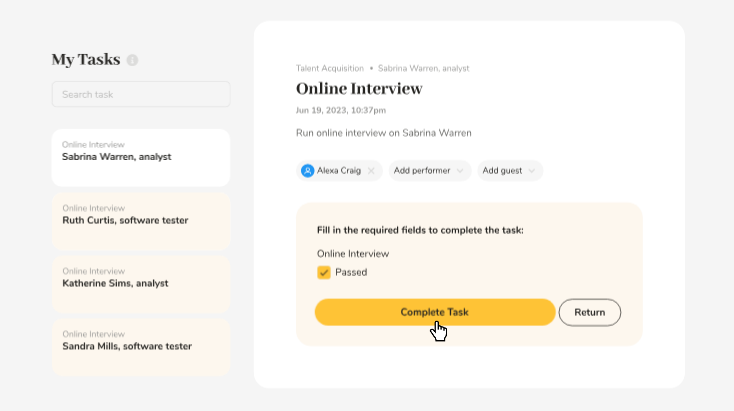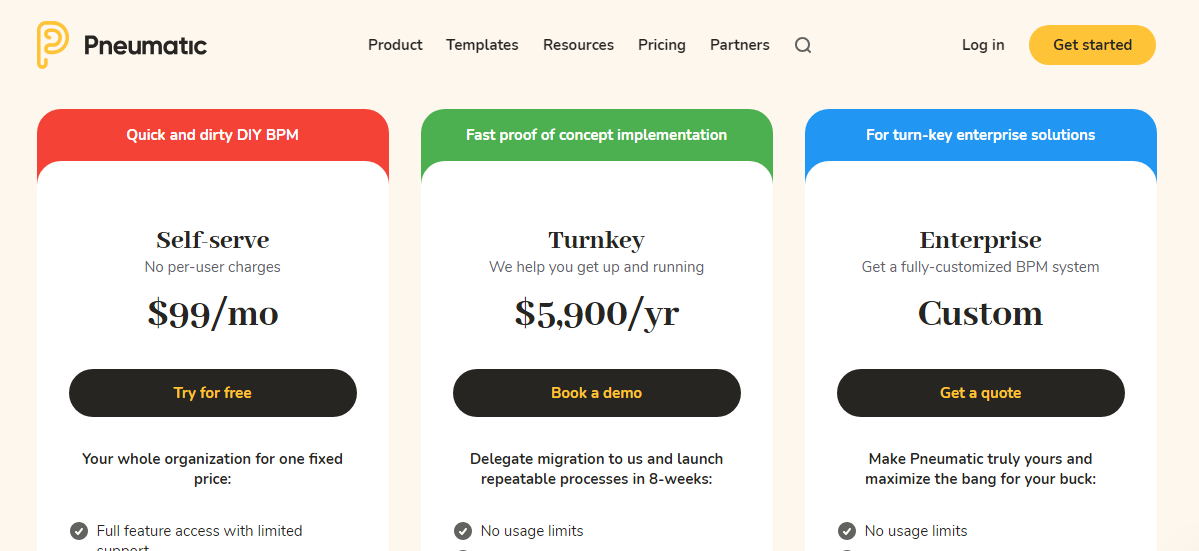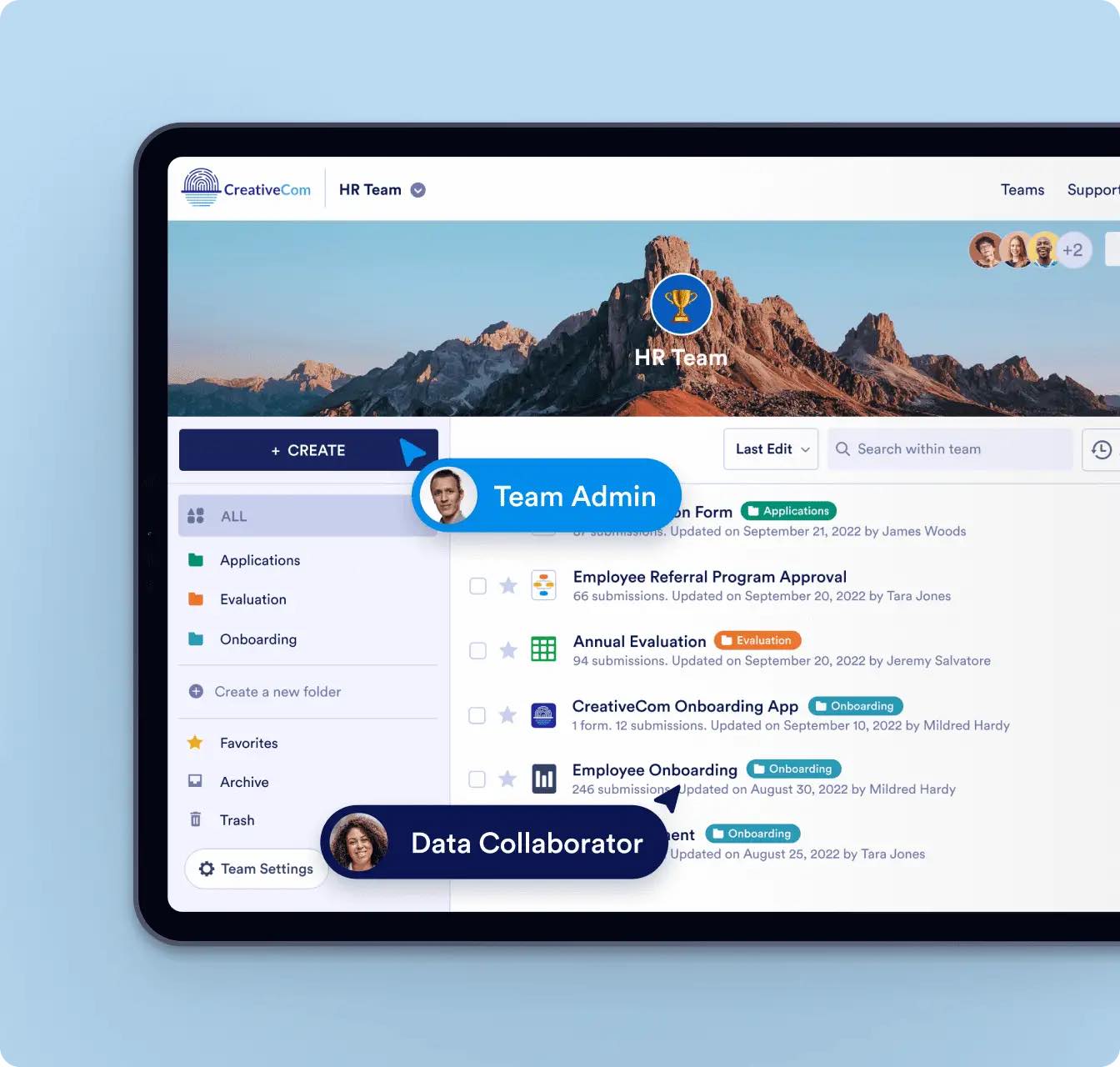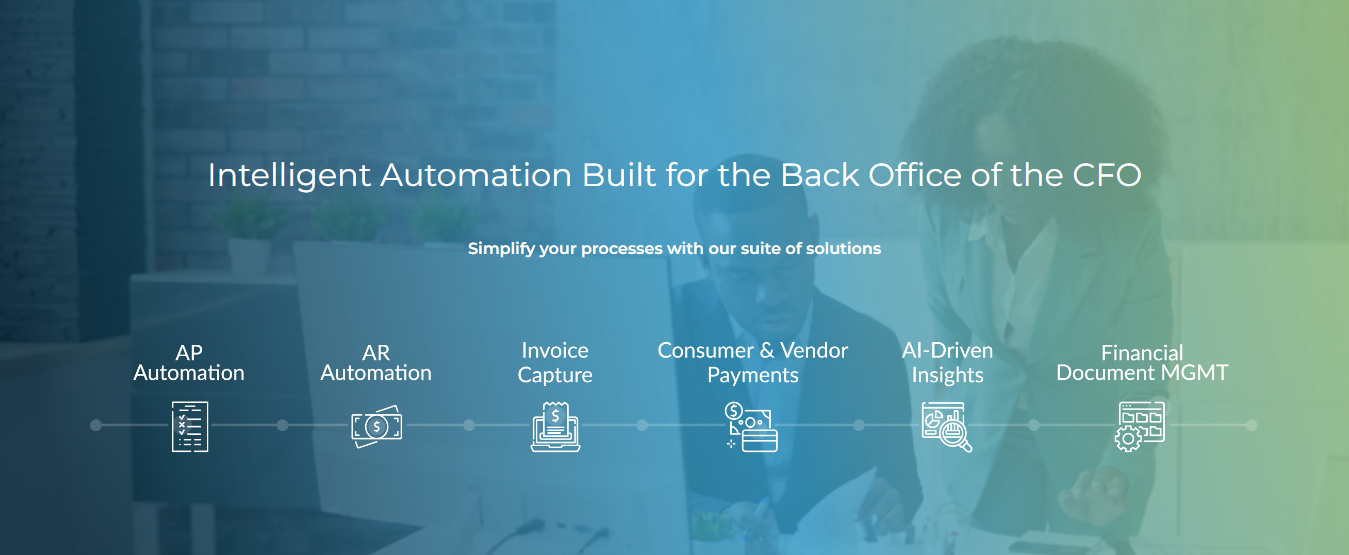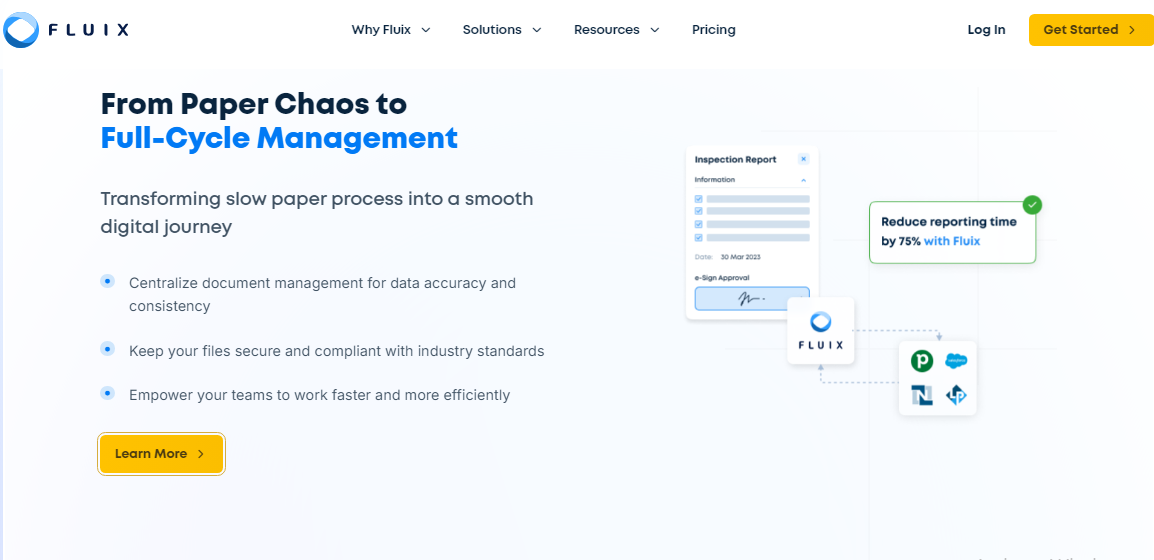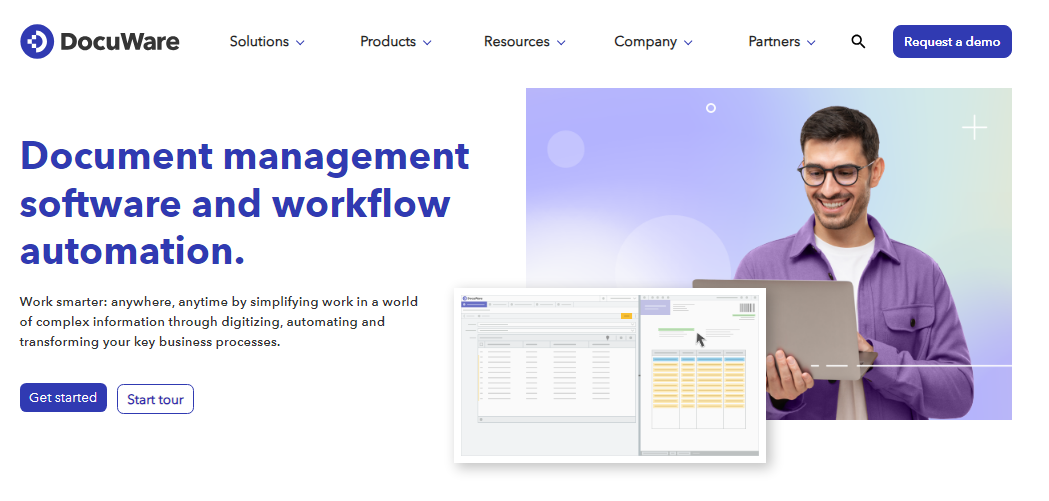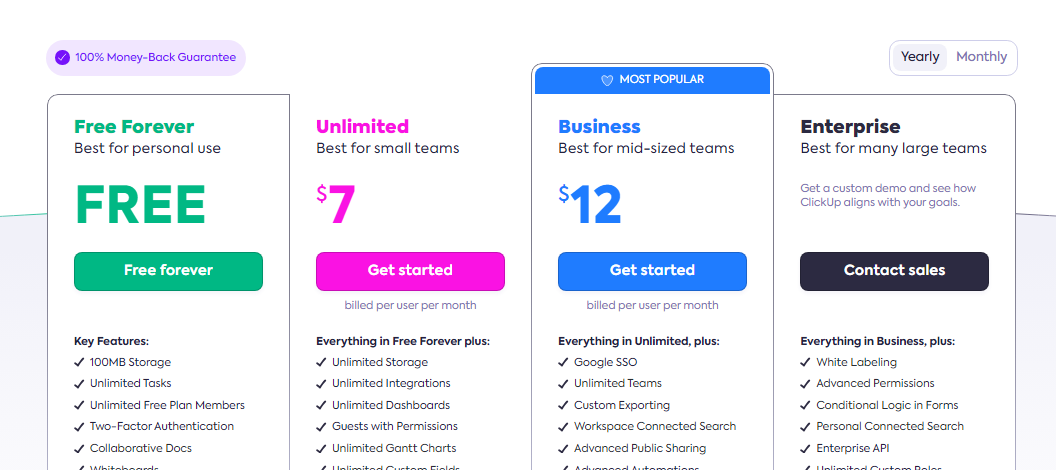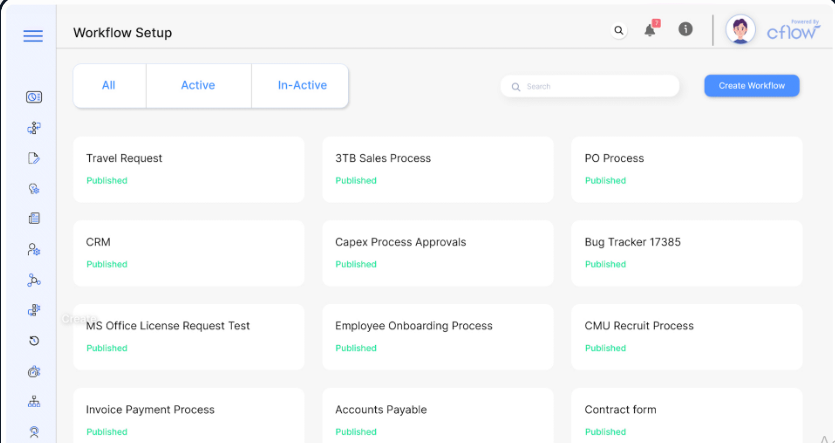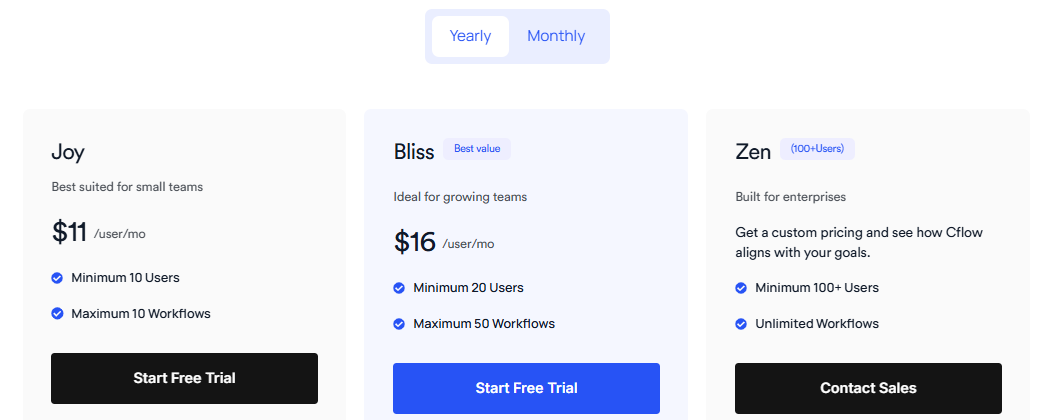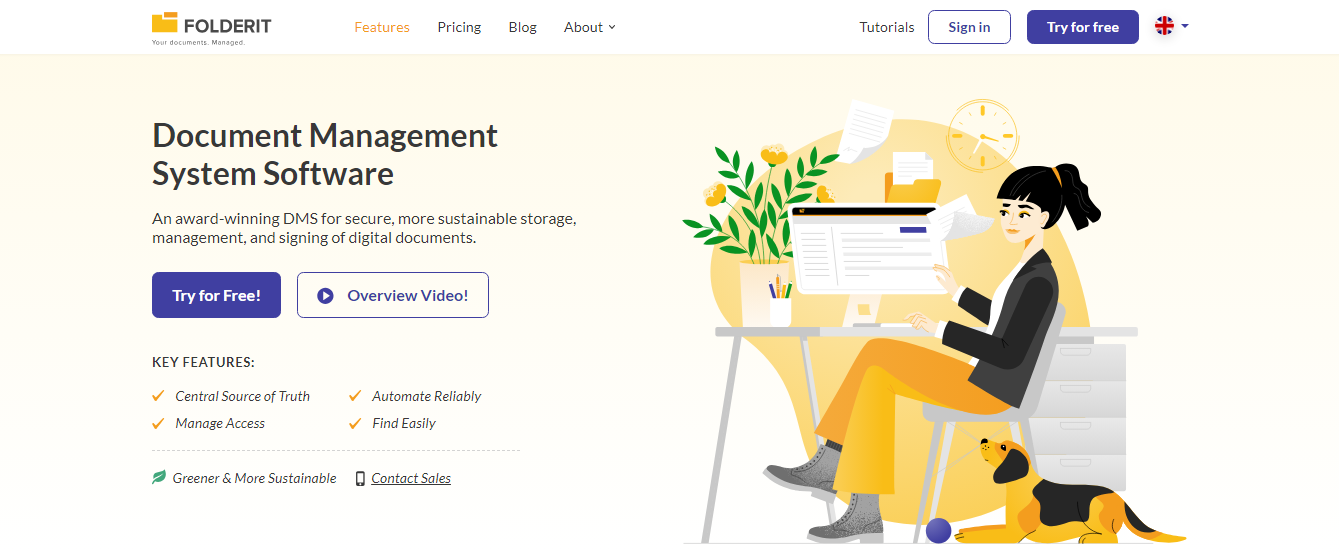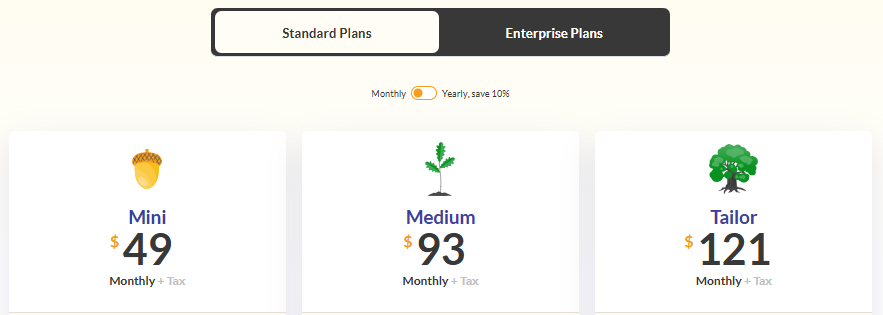Quick Summary
We reviewed the top 10 document workflow software solutions to help teams automate processes and boost productivity. With over 65,000 businesses served, SignWell excels in optimizing workflows with expert e-signature solutions. Efficient software reduces errors, speeds approvals, and secures sensitive data. Find the best fit for your team, and explore our blog for more insights.
Looking For the Best Document Workflow Software for Your Team?
Teams no longer spend endless hours to get the job done. The reason is simple—businesses now automate document workflows to improve productivity, reduce errors, and ensure timely approvals.
However, with so many document workflow software options in the market, choosing the right one can be overwhelming. That’s why we’ve curated a list of the top ten solutions in this SignWell article. Read on to find out the best fit for your business.
Why Listen to Us?
At SignWell, we’ve helped numerous businesses simplify their signing processes and document workflows. We understand firsthand the challenges organizations face in managing documents, having processed over 4,000,000 signed documents and supported over 65,000 businesses in streamlining their workflows.
Brett Prusinski of WNY Consulting Group shares their experience:
These real-world results demonstrate how our platform makes eSignatures and document workflows more seamless and manageable. Now, let’s get to the top ten document workflow software.
10 Best Document Workflow Software
- SignWell
- Notion
- Pneumatic
- Jotform Enterprise
- Docuphase
- Fluix
- DocuWare
- ClickUp
- Cflow
- Folderit
1. SignWell
SignWell is a user-friendly e-signature software designed to simplify the document signing process for businesses of all sizes. With SignWell, you can effortlessly create, send, and track documents requiring signatures, significantly speeding up workflows.
With features like customizable templates, robust tracking capabilities, and seamless integration with other software, SignWell simplifies workflows and enhances collaboration among teams.
We’re compliant with U.S. e-signature laws and international regulations, including eIDAS and PIPEDA. This compliance ensures that all documents signed through SignWell are legally binding and adhere to global security standards, giving you peace of mind about the integrity and validity of your agreements.
Key Features
- Smooth document workflow: We simplify the entire signing process, from document creation to final approval, reducing delays and improving overall efficiency.
- User-friendly interface: SignWell is easy to use, with a simple design that allows anyone to quickly create, send, and track documents without extensive training.
- Custom and reusable templates: Save time by creating custom templates tailored to your business needs. You can also reuse existing templates for frequently used documents.
- Robust audit reports: Generate detailed reports that provide an audit trail of document interactions. These reports include information on who signed, when they signed, and any changes made, ensuring transparency and accountability.
- Seamless integration: SignWell integrates easily with over 5,0000 apps, including Gmail, Slack, and Dropbox, keeping you organized without switching between multiple platforms.
Pricing
SignWell offers various pricing plans to suit different business needs.
- Free Plan: Includes basic e-signature features, allowing users to send a limited number of documents for signing each month.
- Light Plan: Priced at $10 per month when billed annually ($12 when billed monthly), this plan includes features such as free templates, unlimited document signing, and bulk sending options.
- Business Plan: At $30 per month when billed annually ($36 when billed monthly), this plan includes everything in the Light Plan, plus additional features like custom branding, data validation, and in-person signing.
- Enterprise Plan: Offers customized features tailored for large teams, with pricing available upon request.
Pros
- Reusable templates to save time on frequently used documents.
- Detailed audit reports to track document interactions.
- Smooth integration into websites and applications.
- Easily integrates with popular tools like Gmail, Slack, and Dropbox.
- Users report responsive and helpful customer service.
Cons
- Limited features in the free plan.
2. Notion
Notion is a versatile tool that bundles note-taking, task management, and collaboration features into a single platform. With it, companies can create customizable workspaces to manage their projects, notes, and data efficiently.
The platform also allows for seamless collaboration, enabling team members to share pages, assign tasks, and comment on content, which enhances overall productivity.
Key Features
- AI documentation: Notion allows users to create rich text documents that can include images, videos, and links, making it easy to take comprehensive notes or create documentation. Its AI features assist with summarization, writing, and quick information retrieval to enhance productivity.
- Task management: Users can manage tasks using to-do lists, Kanban boards, or calendar views, helping teams keep track of projects and deadlines.
- Databases: Notion enables the creation of databases where users can organize information in various formats, including tables, lists, and galleries.
Pricing
Notion offers four pricing plans.
- Free plan: Comes with basic features like unlimited pages and blocks.
- Plus plan: $10 per seat per month, billed annually ($12 when billed monthly).
- Business plan: $15 per seat per month, billed annually ($18 when billed monthly).
- Enterprise plan: Pricing is available upon request.
Pros
- Users can create highly customized workspaces.
- Provides real-time collaboration, enabling teams to work together efficiently.
- Notion is accessible on various platforms and devices.
Cons
- Setting it up can be time-consuming.
- Users have reported slower performance when handling complex pages or large databases.
3. Pneumatic
As a workflow management platform, Pneumatic is designed to simplify business processes through customizable workflows and integration with existing software. It allows organizations to efficiently create, refine, and manage routine processes, making it easy for teams to work together and achieve their goals.
Key Features
- Customizable workflows: Teams can create and modify workflows to fit their specific business needs, allowing for better process management.
- Templates: Pneumatic provides free workflow templates that users can customize or use as-is. These templates cover various functions like HR, sales, finance, and more.
- Task management: The platform has features for managing tasks throughout their lifecycle, ensuring that all activities are organized and tracked effectively.
Pricing
Pneumatic offers three pricing plans.
- Self-serve plan: $99 per month
- Turnkey plan: $5,900 per year
- Enterprise plan: Pricing is available upon request
Pros
- The AI generator helps businesses create customized workflows.
- Users have access to a variety of pre-built templates.
- Accessible on mobile devices.
Cons
- Not enough advanced features for large businesses with complex systems.
- Doesn’t offer a free plan.
4. Jotform Enterprise
JotForm Enterprise is the advanced version of JotForm, an online form builder. It is designed for larger organizations needing a more scalable and secure solution for form creation, data collection, and workflow automation. The platform offers powerful tools to help businesses manage forms and data across various departments.
Key Features
- Drag-and-drop interface: Users can quickly add, remove, or rearrange form elements by dragging them into place, simplifying the form-building process for beginners and advanced users.
- Customization options: JotForm offers extensive customization options, allowing users to personalize forms with themes, colors, fonts, and logos.
- Smart forms: Create interactive forms using JotForm’s smart features like conditional logic. This allows you to show or hide specific fields based on user responses, ensuring respondents only see relevant questions.
Pricing
Jotform’s Enterprise plan pricing is available upon request and tailored for large organizations with advanced security and custom features. You’ll need to fill in a form to receive a quote for what best fits your business needs.
Pros
- Scalable–offers API access that allows businesses to integrate and customize as they grow.
- Offers extensive customization and white-labeling options.
- Provides dedicated support and account management.
Cons
- Users cannot access or submit forms without an internet connection.
- Users may find it challenging to use advanced functionalities without prior experience or in-depth training.
5. DocuPhase
DocuPhase certainly takes a top spot in the document workflow automation space, offering a comprehensive solution for businesses seeking to digitize and simplify their processes. With features like document capture, workflow automation, and advanced reporting, DocuPhase helps organizations reduce manual tasks, improve efficiency, and maintain compliance.
Key Features
- Centralized storage: DocuPhase provides a single, organized location for storing all documents, making it easy to retrieve and manage files whenever needed.
- Data capture: DocuPhase offers advanced data capture capabilities, allowing you to scan and digitize documents while extracting relevant information.
- Reporting and analytics: Built-in reporting tools provide insights into document workflows, helping you analyze performance and identify areas for improvement.
Pricing
DocuPhase’s pricing is available upon request as it is customized to meet the specific needs of each business.
Pros
- Has pre-built workflow automation that simplifies document processes.
- Efficiently captures information from paper documents, making it easy to digitize and manage data.
- Seamless integration with various existing software tools.
Cons
- Limited collaboration features.
- Needs more tutorials and support material for new users.
6. Fluix
Fluix has also earned a seat among the best document management and workflow automation platforms. It is equipped with features that facilitate efficient document handling, simplify workflows, and enhance collaboration within teams.
With its user-friendly interface, Fluix allows users to create, edit, and share documents easily, making it suitable for businesses that require flexibility and accessibility.
Key Features
- Document management: Fluix provides a centralized platform for storing, organizing, and managing documents, giving teams easier access to the files they need when they need them.
- Mobile accessibility: Ideal for teams and remote workers looking to manage documents on smartphones and tablets. The platform is fully optimized for cross-device use on the go.
- Workflow builder: Fluix offers a user-friendly workflow builder that allows businesses to design and automate their document processes without requiring any coding skills.
Pricing
Fluix pricing starts from $20/user/month, with add-ons attracting extra charges.
Pros
- Fluix is optimized for mobile devices, allowing users to manage documents anywhere and anytime.
- It’s an all-in-one platform for form building, data collection, and workflow automation.
- Users can collaborate in real-time, with features for commenting and annotating documents.
Cons
- Has limited offline capabilities.
- There are some feature discrepancies between the mobile and desktop apps, which may limit users’ abilities to access certain functionalities.
7. DocuWare
DocuWare is a cloud-based platform that helps businesses digitize, manage, and store documents securely. It provides features like electronic signatures, automated workflows, and security measures to protect sensitive information. With DocuWare, businesses can simplify their document processes, enhance collaboration, and improve efficiency.
Key Features
- Workflow automation: DocuWare offers tools to automate repetitive tasks, allowing you to create custom workflows.
- Electronic signatures: The platform has built-in e-signature functionality that lets users sign documents digitally.
- Mobile access: DocuWare is accessible from mobile devices, enabling users to manage documents and workflows actively on multiple platforms.
Pricing
DocuWare’s pricing is available upon request as it is customized to meet the specific needs of each business.
Pros
- DocuWare is noted for its intuitive design, making it easier for users to navigate the system.
- Its Platform enables users to access documents and workflows on mobile devices.
- Seamless integration with many third-party applications, such as ERP and CRM systems.
Cons
- Some users report difficulty in mastering advanced features and functionalities.
- Users noted occasional lag and performance issues, particularly when handling large volumes of documents.
8. ClickUp
ClickUp is a cloud-based productivity platform designed to help teams and businesses manage their tasks, projects, and workflows efficiently. It combines various features like task management, goal tracking, time tracking, and collaboration tools into a single interface. This versatility makes it suitable for different types of teams, including remote and in-office workers.
Key Features
- Task management: Create, assign, and prioritize tasks, set due dates, and track progress through lists, boards, and calendar views.
- Custom workflows: Use statuses and task automation to customize workflows for different project management methods like Agile and Scrum.
- Time tracking: time tracking allows you to log hours spent on tasks, making managing project timelines and budgets easier.
Pricing
ClickUp offers five pricing plans:
- Free Forever Plan: Free plan with basic features.
- Unlimited Plan: $7 per user per month, billed annually ($10 when billed monthly).
- Business Plan: $12 per user per month, billed annually ($19 when billed monthly).
- Enterprise Plan: Pricing is available upon request and tailored for large organizations.
Pros
- ClickUp is an all-in-one platform for project management, task tracking, time tracking, and document creation.
- Offers a wide range of features that can be tailored to suit any team’s needs.
Cons
- Users have reported challenges with the filtering options.
- According to users, the whiteboard function for visual collaboration is difficult to use.
9. Cflow
If your internal processes are complicated and time-consuming, Cflow is your best bet. It simplifies and automates workflows, allowing you to streamline approvals, manage data, and gain control over complex tasks without needing technical expertise.
Cflow’s user-friendly interface and powerful automation tools make your workflows more efficient, reducing bottlenecks and saving time across departments.
Key Features
- Visual workflow builder: Cflow offers a drag-and-drop workflow builder, making it easy to design custom workflows without coding skills.
- Pre-built templates: Provides several pre-built workflow templates for standard business processes like approvals, onboarding, and expense management.
- Comprehensive reporting: Cflow offers detailed reporting features to monitor workflow performance, helping you gain insights into bottlenecks or inefficiencies.
Pricing
Cflow offers three pricing plans:
- Joy Plan: $11 per user per month, billed annually ($22 when billed monthly).
- Bliss Plan: $16 per user per month, billed annually ($32 when billed monthly).
- Zen Plan: Custom pricing built for larger enterprises.
Pros
- It’s a no-code platform, allowing non-developers to automate processes easily.
- Seamless integration with third-party tools like G Suite and Office 365
- The platform is mobile-friendly, enabling users to manage workflows and approvals on the go.
Cons
- Difficult logical functions to understand at the initial stage.
- Users reported slow performance with large data transfers.
10. Folderit
As a cloud-based document management system (DMS), Folderit helps businesses securely store, organize, and manage their files. The platform offers features like document sharing, approval workflows, metadata tagging, version control, and search functionalities. These features make it ideal for businesses needing a simple but effective solution for managing documents.
Key Features
- Document sharing: Share documents with team members or external stakeholders with customizable access permissions.
- Metadata and tagging: Organize files using metadata fields such as tags, descriptions, and due dates to easily categorize and find documents.
- Approval workflows: Set up approval processes where documents are routed to specific people for review and approval.
Pricing
Folderit offers three pricing plans for its Standard package:
- Mini Plan: $49 per month, $532 yearly.
- Medium Plan: $93 per month, $1,005 yearly.
- Tailor Plan: $121 per month, $1,337 yearly.
Pros
- Offers powerful document management features for both small businesses and large enterprises.
- Search features come with advanced filtering options.
- Folderit prioritizes security with features like encryption, access control, and audit trails.
Cons
- Users have reported slow performance when uploading large or multiple files.
- Compared to some competitors, Folderit lacks extensive integrations with third-party apps.
Equip Your Team For Efficient Document Workflow with SignWell
Investing in the right document workflow software can transform how your team operates, allowing you to focus on what truly matters: delivering exceptional results. The options listed above—from SignWell’s user-friendly e-signature platform to Cflow’s intuitive workflow automation tools—offer features that empower teams to streamline tasks and work smarter.
SignWell stands out as an e-signature software with robust features like smooth workflows, a user-friendly interface, and audit trails to improve the document signing process. With customizable templates and seamless integration options, SignWell simplifies the signing experience for businesses of all sizes.
Why wait? Sign up for free today and equip your team with more efficient document workflows.
Get documents signed in minutes.
Simple, secure, affordable eSignatures
by  .
.
Get Started Today
businesses served
customer support satisfaction
documents signed
